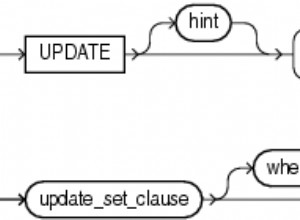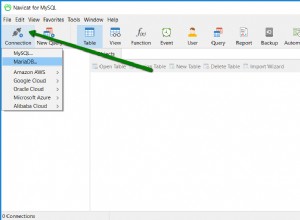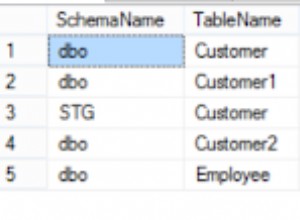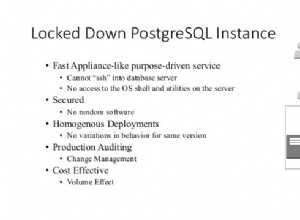Una volta che abbiamo iniziato a utilizzare ODP.NET, abbiamo dovuto implementare un'estensione come quella di seguito:
public static T ConvertOracleValue<T>(this object value)
{
if (value != null)
{
Type typeOfValue = value.GetType();
if (typeOfValue.Namespace.Contains("Oracle.DataAccess"))
{
if (typeOfValue.Name.Equals("OracleTimeStamp"))
{
int tempInt = 0;
Oracle.DataAccess.Types.OracleTimeStamp ots = (Oracle.DataAccess.Types.OracleTimeStamp)value;
tempInt = Int32.TryParse(ots.Millisecond.ToString("000").Substring(0, 3), out tempInt) ? tempInt : 0;
DateTime ret = new DateTime(ots.Year, ots.Month, ots.Day, ots.Hour, ots.Minute, ots.Second, tempInt);
return ConvertHelper.ConvertValue<T>(ret);
}
if (typeOfValue.Name.Equals("OracleTimeStampLTZ"))
{
int tempInt = 0;
Oracle.DataAccess.Types.OracleTimeStampLTZ ots = (Oracle.DataAccess.Types.OracleTimeStampLTZ)value;
tempInt = Int32.TryParse(ots.Millisecond.ToString("000").Substring(0, 3), out tempInt) ? tempInt : 0;
DateTime ret = new DateTime(ots.Year, ots.Month, ots.Day, ots.Hour, ots.Minute, ots.Second, tempInt);
return ConvertHelper.ConvertValue<T>(ret);
}
if (typeOfValue.Name.Equals("OracleTimeStampTZ"))
{
int tempInt = 0;
Oracle.DataAccess.Types.OracleTimeStampTZ ots = (Oracle.DataAccess.Types.OracleTimeStampTZ)value;
tempInt = Int32.TryParse(ots.Millisecond.ToString("000").Substring(0, 3), out tempInt) ? tempInt : 0;
DateTime ret = new DateTime(ots.Year, ots.Month, ots.Day, ots.Hour, ots.Minute, ots.Second, tempInt);
return ConvertHelper.ConvertValue<T>(ret);
}
string temp = value.ToString();
return ConvertHelper.ConvertValue<T>(temp);
}
}
else
{
return default(T);
}
return ConvertHelper.ConvertValue<T>(value);
}
dove ConvertHelper.ConvertValue è un'altra estensione:
public static class ConvertHelper
{
public static T ConvertValue<T>(object value)
{
Type typeOfT = typeof(T);
if (typeOfT.BaseType != null && typeOfT.BaseType.ToString() == "System.Enum")
{
return (T)Enum.Parse(typeOfT, Convert.ToString(value));
}
if ((value == null || value == Convert.DBNull) && (typeOfT.IsValueType))
{
return default(T);
}
if (value is IConvertible)
{
return (T)Convert.ChangeType(value, typeOfT, new CultureInfo("en-GB"));
}
return (T)Convert.ChangeType(value, typeOfT);
}
}
Ha funzionato benissimo nei nostri ambienti di test, integrazione e produzione.




